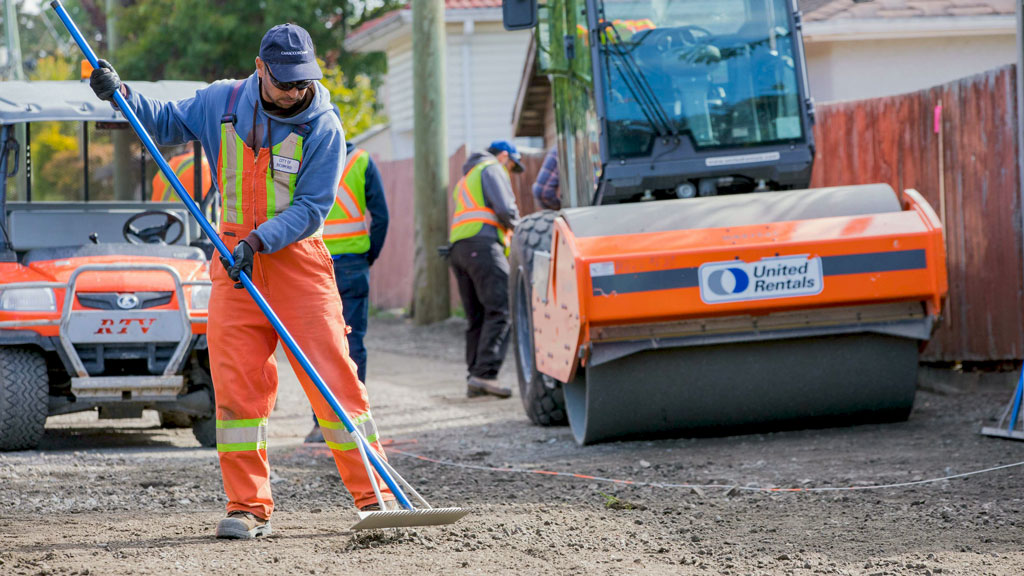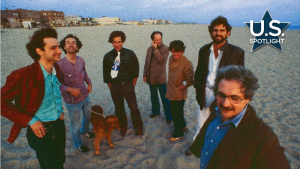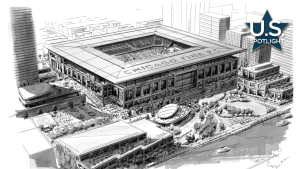The City of Richmond is paving the way to a greener future with its asphalt recycling pilot project.
The city’s partner on the High Recycled Asphalt Pavement project, Lafarge Canada, recently laid an 800 metre stretch of paving over four lanes of road along the 7000 block of No. 5 Road. The pavement material included 40 per cent recycled asphalt paving.
Peter Russell, the city’s director of sustainability and district energy, explained the concept for the project began with the National Zero Waste Council, which Richmond Mayor Malcolm Brodie chairs. The idea then evolved into a partnership with Lafarge Canada to demonstrate the potential of recycled asphalt for others.
“It’s really about putting substance around your statements,” said Russell. “This is to show cities around Canada that this can be done.”
The city worked to develop a draft accreditation system to identify best practices for producing high quality recycled asphalt products. Russell said the city and Lafarge supervised the entire process, making sure a high-quality product was produced.
Eric Sparolin, acting manager of engineering design and construction with the city, explained that unlike other similar recycled asphalt projects cities have done, this project is using a much higher amount of recycled material on a much higher traffic road.
“We have been using recycled asphalt for a long time within cities but typically at a lower percentage, like 10 and or 20 per cent,” said Sparolin. “This is about going to a higher level and not on a small local road.”
He noted one of the huge advantages of recycling asphalt is that it requires no specialized equipment to produce or apply, meaning it could be used anywhere in Canada, which is a major win for cities trying to meet climate goals.
Lafarge Canada and the city will closely monitor the road section annually the next five years and, if outcomes are as positive as anticipated, more recycled asphalt projects will follow.
“Road construction and maintenance is an important and necessary reality of municipal operations and it’s not an area that has seen great strides in environmental improvements,” said Brodie in a media release. “Guided by our the city’s zero waste commitments and our drive to be a change leader, the City of Richmond is paving the way — literally — for a sustainable future in road construction.”
According to Lafarge Canada, the use of recycled materials in asphalt production lowers the greenhouse gas (GHG) emissions from upstream suppliers of aggregates and bitumen as less material is required for manufacturing for the asphalt production. There is also a decrease in transportation-related GHGs due to the reduced volume of virgin material to transport over time. Lafarge noted that transportation of recycled materials directly to stockpiles at urban depots are traditionally a shorter distance than virgin material to plant sites, resulting in a net decrease in GHGs.
Sparolin said other cities have already started reaching out to Richmond so they can also understand the process. The city added that the project outcomes, in some form, will be broadly shared so others can develop their own programs.
Follow the author on Twitter Russell@Reports.











Recent Comments